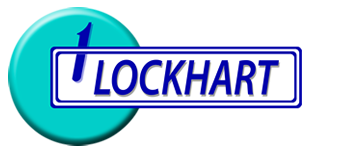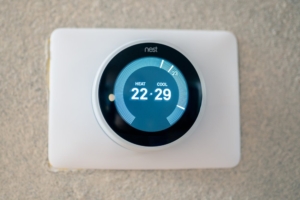Which Heating System is the Best Solution for Your Home?
Everyone enjoys a warm, cozy home during the cold winter, preferably with an efficient, easy-to-maintain heating system that isn’t too expensive to install or run.
This article will review the most commonly used heating systems and their benefits and drawbacks, including the pros and cons of heat pumps, geothermal heating, electric heating and more.
How to Choose the Right Heating System
If you are considering changing or upgrading your heating system this year, there are a few things you should consider, such as:
- Budget – for initial outlay and ongoing costs.
- Is there ducting or pipework in the home, or would you consider installing it?
- Is your home connected to a gas line?
- Is the gas more expensive to use than heat pumps?
- How much ongoing maintenance and cleaning are you prepared to carry out?
- What is the climate like where you live?
Pros and Cons of Heat Pumps as a Heating Source
Heat pumps don’t create heat but rather work to move heat from one place (the air outside) to another (inside your home) using a refrigerant that converts from gas to liquid and back to a gas again as it heats and cools.
There are two different main types of Heat Pumps
Ducted heat pumps – a single outdoor unit draws warmth from the outside air. This energy/heat is transferred to a single indoor unit, which distributes the warm air throughout the home via ducting.
Pros of Ducted Heat Pumps:
- If existing ductwork is utilized, installation costs are relatively low
- Uses less energy to deliver more heat than other options
- Effective and efficient – delivers consistent heat
- System can be reversed to cool your home during the summer
Cons of Ducted Heat Pumps
- Installing ductwork is expensive and time-consuming and not even possible in all homes
- Ducts require regular cleaning and maintenance to ensure dust and allergens are not being spread throughout the home
- Air temperature cannot be adjusted in specific rooms always easily
- Less effective in freezing climates when poorer quality name brands are chosen
Ductless heat pumps – also known as mini-split heat pumps. These systems are made up of wall-mounted indoor evaporator units (heads) linked to an eternal unit via a simple refrigerant line. Single-zone or multi-zone units are available depending on the size and layout of your home.
Pros of ductless heat pumps
- Can be quick and easy to install with no major construction
- Offer the ability to heat or cool the home in each room or zone but not usually simultaneously
- Very energy-efficient when reputable name brands are selected
Cons of ductless heat pumps
- High upfront costs if many heads are selected – although some of these can be offset with rebates depending on where you live
- Indoor units need to be maintained with regular filter changes
- Some people don’t like the look of the indoor units, although several different options are available to best suit your space
Check out this article by HGTV to see if ductless heating and cooling is right for you.
Geothermal Heating Pros and Cons
Geothermal or GeoExchange heating systems utilize heat via pipes laid in the ground, in ponds, a lake or ocean water to warm and cool your home. This heat is then distributed around your home via a forced air or in-floor heating system.
Pros of Geothermal Heating
- GeoExchange systems are the most energy-efficient and environmentally-friendly way to warm or cool your home
- Little to no maintenance is required once installed
- Geothermal systems have a very long lifespan
Cons of Geothermal Heating
- High initial expense – although these costs are quickly recovered through energy savings
- Outdoor space is required for laying of pipes
Radiator Heating Pros and Cons
Radiator-based heating systems use a boiler to heat water or create steam which is then circulated via pipes to wall-mounted radiator units or floor vents in each room. The boiler can be powered by natural gas, propane, or electricity in these systems.
Pros of Radiator Heating
- Flexible heating – each room temperature can be set using the thermostat on the radiator unit
- A quiet system requiring minimal maintenance
- Energy-efficient when temperature controls are used effectively
Cons of Radiator Heating
- Heat distribution is slow and can be uneven
- Radiator units can be intrusive and take up wall space in a room
- Requires pipework which is costly to install
- The boiler requires regular maintenance and is twice to three times as expensive to run as Air to Air or GeoExchange heat pumps are
Oil Heating Pros and Cons
Heating oil can fuel hot water, steam heating boiler systems, or furnace-based forced air systems. Oil tends to be used for more rural properties that may not have access to natural gas lines or knowledge of the energy efficiency of heat pumps or the rebates available.
Pros of Oil Heating
- Heating oil is stable and safe when stored correctly
- It burns at the hottest temperature and so heats your home faster with less fuel
Cons of Oil Heating
- Oil must be purchased, delivered and stored in a tank on site
- Oil prices are high compared to other fuel sources
- Higher levels of upkeep required
- Burning oil releases harmful chemical emissions into the atmosphere consisting of CO2, sulphur dioxide and carbon monoxide
In-Floor Heating Pros and Cons
In-floor heating systems use either electric wires or hot water pipes (hydronic heating) installed directly in or under the flooring of your home to deliver continuous and even heat.
Pros of In-Floor Heating
- Rooms warm evenly without hot or cold spots
- Very little maintenance once installed
- Can be energy-efficient when combined with smart thermostats
Cons of In-Floor Heating
- Existing flooring will need to be lifted or replaced for installation
- Initial costs can be high, especially if choosing the hydronic (water) option
- Can take a while to heat up
Electric Baseboard Heating Pros and Cons
Electric baseboard heating uses electrical resistance to create heat without ducting or pipework. Individual baseboard units are placed in each room, usually low to the ground and close to windows, to combat heat loss.
Pros of Electric Baseboard Heating
- Easy to install, meaning relatively low initial costs
- Allows for different temperatures in each room
- No furnace or boiler required
Cons of Electric Baseboard Heating
- Inefficient – can lead to very high energy bills
- Units can be unsightly, and placement can interfere with furniture
- Safety hazard – electric coils inside units can be hot to the touch. This causes a risk of house fire and the possibility of young children burning themselves on the hot coils.
Choose an Expert to Help Install your New Heating System
If you need advice on which commercial or residential heating system is best for you, consult professional heating experts such as Lockhart Industries. We have over 405 years of experience offering heating and cooling solutions to the Victoria and Duncan, BC areas. We know the best solutions for the local Island climate and homes.
Contact us today to discuss your home heating and cooling needs with our knowledgeable and experienced team.
Easy Financing with…
Start Saving Money NOW! There’s no need to putting off a more Energy Efficient, Cost Effective home comfort system. We make it simple!
With Financeit you can:
- Make additional payments any time without penalty.
- Get a lower payment by choosing an amortization period of up to 180 months. 7.99% to 11.99% interest rate.*
- We add a small fee to the loan amount. There are no hidden or additional charges
- Bank-level encryption (AES-256 bit SSL) to protect your personal information.





